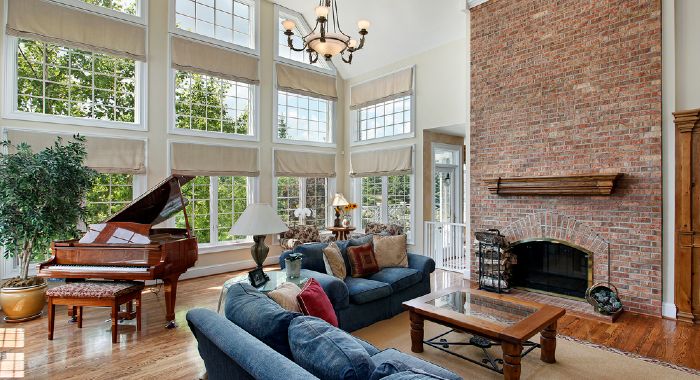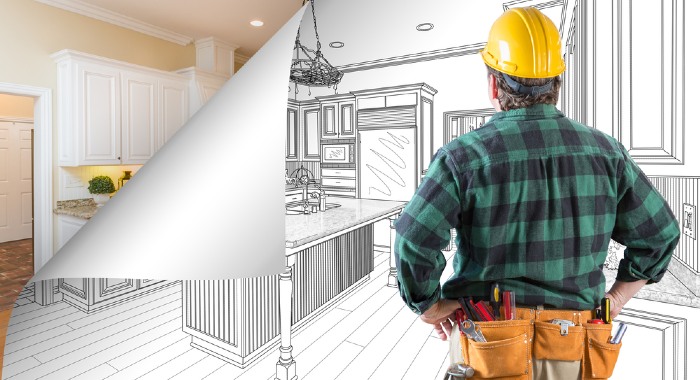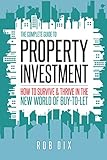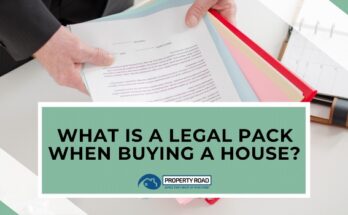The subject of how to start flipping houses is back in the news with investing or home flipping reaching a 12-year high.
For those who may not appreciate how to start flipping houses, then it’s important that you understand the potential of investing and then making a profit.
It helps that the findings from Rightmove highlight that there are property bargains to be had – and there are lots of buyers wanting to buy a home that has been refurbished.
Don’t forget too that there are other costs when it comes to buying a property, including stamp duty and other things, such as the conveyancing solicitor.
You may also be liable for Capital Gains Tax (CGT) when you sell the property so speaking with a financial advisor or an accountant from the outset might be a good idea.
You may also have estate agency fees to pay as well, which will cut into the profit you hope to make.
We will look later at buying properties at auction to make a profit.
Flipping houses in the UK
As with all types of property investment, there are disadvantages and advantages when it comes to flipping houses in the UK.
Firstly, the aim to flip a house for profit is not simply to buy a cheap house, do it up, and then finding tenants until house prices rise; the aim is to buy a property, carry out some work and sell it to make a profit – usually within 12 months.
In some circles, house flipping is also known as:
- Fix to sell;
- Buy to sell;
- Property trading;
- Fix and flip.
The advantages of house flipping are numerous and include:
- Property experts say that there is still a potential to enjoy a return on investment in some parts of the UK of more than 20% for flipping a house.
- There are some excellent property bargains to be had to make house flipping a realistic and potentially profitable prospect for everyone – including for novice investors.
The disadvantages of house flipping:
- You may need to invest in an area that is unfamiliar to you in order to achieve a return on investment;
- Be aware that borrowing is becoming more difficult and expensive with many lenders no longer offering 95% mortgages;
- Growing numbers of lenders are increasing their loan to value (LTV) rates so you will need more money to invest;
- Be prepared for a longer wait in order to sell a renovated home;
- Be aware that some lenders have rules that restrict a property sale unless you own it for six months.
There’s no doubt that house flipping works best when the housing market has strong demand in the UK. With depressed demand, then it is harder to make a profit.
Our Favourite Books On Property Investing:
House flipping grows in popularity

According to the figures, around one in 40 homes that were bought in 2020, were sold within 12 months.
That is the strict definition of house flipping.
Essentially, the tactic will see an investor buying a property that is below its market value, renovating it, and then making a profit when sold.
And while house flipping has been around for many years, it appears that growing numbers of us are looking to try it.
But potential investors wanting to know how to start flipping houses need to be aware that there is more to flipping than carrying out a deep clean, fitting new cabinets, or even painting every surface – you will need to put some effort in to achieve a profit.
How to successfully flip a property
Here are some Property Road tips on how to successfully flip a property.
BRR
To really understand flipping, you need to understand the term BRR which stands for buying, refurbishing, and refinancing.
Essentially, you need to find a property that only needs a small amount of money to be invested in it.
This means you could be looking at a bridging loan, which is a type of short-term loan, rather than buying with a full mortgage.
You can then renovate the property to a standard where it will find a buyer or attract a mortgage.
Buyers are crucial
There’s no point investing money to buy a property to flip if no-one wants to buy that type of property in the area.
This means you need to understand what your buyers needs and wants are.
So, when you start looking at potential properties to flip, you also need to consider who you will sell the property to.
Whether it’s a family home or a flat for couples, or even to a landlord who wants a quality home to rent out.
Each of these potential buyers will have different needs and wants from their property.
For example, to sell to a family, you should look at those properties with off-street parking and a large garden.
For those wanting a flat, they may be young professionals who are wanting modern touches.
Staging

One of the key tips when it comes to selling a property in the UK is the issue of staging.
This means that you will prepare a property to look as appealing as possible to attract buyers.
There are various tips to boost your home staging opportunities including investing in pot plants and using neutral colours when decorating.
Decorate
Another tip to attract house buyers is that you need to decorate – even if a wall has a little damage, you should give it a lick of paint.
You could also look at the latest decorating trends because this will not only make your home look more attractive but will appeal to those buyers who do not want to spend time early in their occupancy having to redecorate.
Should you still be decorating the property when it is put up for sale, remember to use air freshness to mask any paint smells.
Promotion
It’s one thing finding and then buying a property you want to flip, but the aim is to find a buyer.
Along with decorating and staging, you still need to promote the property’s most attractive parts.
All of its features and rooms need to look as appealing as possible and it may be worth investing in professional photographs of the property to attract buyers.
The financial numbers for property flipping
While house-flipping has been around in the UK as a well-known property investment strategy, you need to make profits.
It helps that there is a simple calculation to work out how much profit you can make when flipping a property. It is:
The property’s selling price – the house cost – the renovation costs = Your house flipping profit
To put this into context, here are some figures to consider:
- You buy a property at £150,000;
- It costs £20,000 to renovate;
- You have other costs of £10,000;
- You sell your property for £225,000;
- Your house flipping profit is £45,000.
It’s also easy to calculate what your return on investment is using a simple formula.
Most property investors will use Profit/Your total investment (x 100) = ROI.
Using the numbers from above, this will equate to:
£45,000/£225,000 = 20%
And that’s why buying a property and flipping it within 12 months is attracting lots of people in the UK to the potential that flipping brings.
However, not every house flipping deal will generate an impressive ROI and there are lots of things that can go wrong with your investment.
Usually, a property developer will aim for an ROI of at least 20% – and figures lower than that means that you run the risk of not making any money at all.
And means your aim of learning how to start flipping houses will not succeed.
5 ways to add value to an investment property before flipping
1. Loft Conversion
If you have a property with lost space that hasn’t yet been converted, it’s worth looking into. Loft conversions are estimated to add around 12% the price of a property. You can expect to pay upwards of £20,000 for a loft conversion so it’s usually only suitable for properties valued at £180,000 or more. Although it does, of course, depend on the property.
Typically, loft conversions do not require planning permission (although it’s worth checking with your local planning office) but they do need to be carried out to current building regulations. That may involve replacing the floor joists and ensuring there is enough head height on all escape routes.
Adding a dormer is more costly than a skylight but it will increase the amount of space and head height in the room and is often worth the additional cost.
2. Update Bathroom/Kitchen
Bathrooms and kitchens sell houses. People love a nice, modern kitchen and bathroom in a house. Ideally, you’ll want to make sure both are up to scratch, but, if you can only choose one, choose the kitchen.
Despite our move to convenience food, people still spend a surprising amount of time in the kitchen, particularly if it’s a kitchen-diner.
Therefore, sprucing up an old kitchen with a new layout, new cabinets, and modern equipment can add as much as 5% on to the value of a property. If you think the costs of a complete revamp of the kitchen well outweigh the value increase, consider simply changing the doors and worktops for a low-cost way to add value.
3. Increase The Living Space
Increasing the available living space is one of the sure-fire ways to add value to a property. This can be done in several ways including a garage conversion, adding a conservatory or building an extension.
Garages are rarely used to park cars in these days. In fact, most garages are just too narrow for modern-day cars. For this reason, if it’s viable, changing into an extra living space can have a significant impact on the value of the property. If you’re worried about losing the storage space, look at whether you can leave part of the space as a storeroom.
Conservatories are very much in demand with buyers. With the unreliable British weather, they bring the outside inside and allow people to enjoy their garden in all weathers. A conservatory is likely to cost around £5,000-£30,000 and can add up to 7% to the value of a property.

Building an extension is the number one way to increase the amount of living space in a property. They don’t just become extra rooms, they truly become part of the house. From a simple single-storey extension, through to a full-blown extension, you can go as far as you want.
You can expect a full-blown extension to add around 11% to the value of a property. Just be sure to get planning permission for any extensions you want to build and ensure the work meets any building regulations that apply.
If your funds don’t stretch to building an extension yourself, at least apply for planning permission. If it’s granted, your property will immediately become more attractive than similar properties without the planning permission.
4. Add Extra Parking
Having your own transport is no longer considered a luxury, it’s an essential item for many households. And, with more couples working, the demand for parking spots has never been higher, particularly in busy cities.
You can solve parking problems by paving over the front garden and adding a dropped kerb if you need to. Of course, not all properties are suitable for this and again, you may need planning permission. But, a paved front garden can add as much as £50,000 to the value of a property in an expensive urban area.
5. Modernise It
Having up-to-date plumbing and electrics is essential when selling on an investment property. If the consumer unit and wiring is out of date, bring in a Part P qualified electrician do bring it up to current standards.
Better yet, if the property does not already have central heating installed, add it. Central heating is a must for most buyers and tenants now and installing central heating may cost around £1,000 to £3,000 but will add around £5,000 or more in value to the property. Gas SafeRemember than any work involving gas will need to be carried out by a registered plumber.
As you can see, lots of things affect the value of a house, so there are many ways you can add value to an investment property. The key thing is to understand your local area, know how much any work you plan will cost, and have a good idea of how much the property value will grow when the work is complete. This way you’ll always know if its worth doing the work.
Keep in mind that many areas have a ‘ceiling’ price, that’s essentially the maximum price people will pay for a house in that area regardless of how nice it is. It’s always worth talking to an estate agent before carrying out any work to get their views on what is in demand in that area and what the best improvements you could make to a property are at the moment.
Buy a property at auction to flip

As we have seen, the secret to successful property flipping is to find the perfect property at the right price.
And usually, the best place for doing this is at a property auction.
These take place regularly around the UK, so you need to source auction houses and contact them for their sales catalogue.
There’s usually a short time between the catalogue being published and the auction taking place.
You will need to visit the property that’s on sale, and it’s worth taking either a tradesman or a surveyor to see what the problems are and, more importantly, how much they will cost to repair.
This is also the point to highlight that when buying a property at auction to flip, you really need a budget in mind and stick to it.
Do not be tempted to join a bidding war for a property because this will simply eat into your profits. Also, you should consider:
- Do your research where properties are being snapped up quickly;
- Learn which properties buyers are wanting;
- Avoid bidding wars;
- You should target a property that appeals to the widest possible range of buyers;
- Understand how the auction process works;
- You will have a deadline to complete the purchase;
- Consider whether you are paying in cash or need a bridging loan;
- Once the hammer falls, you will need to pay a deposit.
Buying property at auction can be an exciting undertaking but you need to be rational and business-minded.
Buying at auction to quickly flip
The other issue when buying at auction to quickly flip a home is that the property may be quite run down.
This means the property will probably be much cheaper than you are predicting, and there may be little competition from other bidders.
However, before bidding you need to understand how much it will cost to renovate before being sold to a buyer.
Of course, there is another flipping tactic when buying a property at auction for you to consider.
And that’s to buy a property cheaply knowing you can sell it for more without having to do any work.
That really is a quick flip, and you can even use a competitive auction to find buyers with deeper pockets.
What is property flipping?

While property flipping does sound attractive and offers great potential for profits, there is a very good reason why not everyone is doing this.
There’s more to flipping than simply buying a house and then selling it for profit, and that is the supply of houses to buy cheaply is not huge.
Along with sourcing cheap houses, there is strong competition to buy them from other flippers – but it is not impossible.
You may find that further research, particularly reading books on successful property flipping will help strengthen your tactics and understanding of this sector.
The other big reason why not everyone decides on flipping a property is that there is a financial risk involved.
While you may buy a cheap property, you may seriously underestimate the renovation costs and end up out of pocket.
Skills for successful property flipping
Here are some skills that may be required for successful property flipping:
Confidence
You need to source the ideal property and quickly work out that it has the potential to be sold for much more.
Maths
You need to quickly calculate the cost and potential value of a property to see whether it’s worth pursuing – a crucial part of how to start flipping houses.
Nerve
While the aim is to buy, renovate and then sell the property within 12 months, you’ll need some nerve when costs are mounting or if you struggle to sell.
Tactics
There will be some skills necessary when it comes to negotiation tactics – you need to negotiate a buying price, and also the selling price.
Managing
One of the least understood skills is project management when you want to learn how to start flipping houses because along with calculating the costs, you will need to employ tradesmen to carry out various work. You will need to manage the property refurbishment to ensure everything is within the budget.
It’s also worth noting that property flipping will be more time-consuming than most novice investors will appreciate but it can be very lucrative.
Why property flipping research is important

For a property flipping project to be successful, i.e. one that makes a profit, you need to carry out further research.
Along with finding cheap properties, you also need to buy in an area where there is demand from buyers. You will also need to consider:
- Is the location attractive to a wide range of potential buyers?
- What are the transport links and local schools like?
- Are there local shops nearby?
- Will any upcoming property developments affect the house price?
- Look at potential planning issues that can also hit the house price.
It’s also worth researching potential contractors you can rely on to carry out the refurbishment work, and you will need to pay them on time.
Indeed, it’s worth considering paying a deposit whenever you want to hire them.
How to fund a property flipping project
Unless you have the cash to buy a cheap property or have access to funding, then you will be needing to fund your property flipping project.
This can be a challenge for those who don’t have the cash or access to funds.
Firstly, it is unlikely you will attract a mortgage on a property that is in a poor condition.
That means you could be looking for a bridging loan to renovate the property.
A bridging loan can run from 12 months and up to 24 months and can be repaid at any time.
Should your first project be a success, then having an established relationship with a bridging loan lender for flipping purposes, could be very useful for any future projects.
You can also consider property crowdfunding loans and various platforms are offering this facility.
There are also cash lenders who were interested in flipping projects, but you will be sharing profits with them.
How to find a house to flip successfully

In order to make a profit when flipping a house successfully, you need to buy at the right price.
But how do you find a house to flip and at a good price?
There are a number of ways to do this and it is worth putting the legwork in by contacting estate agents who will be selling properties that are in need of repair.
You could also network with landlords who are looking to offload a property from their portfolio.
The alternatives for finding a property include:
Auction houses
We have already explained that using auction houses is an effective way to find cheap houses if you have the cash available, or have quick access to the money when buying at auction.
Property portals
It’s worth keeping an eye on popular property portals like Zoopla and Rightmove when you want to know how to start flipping houses.
You may see a house being listed that is in poor condition or a house with three bedrooms, but it is a spacious property and can be converted into a four- or five-bedroom property. This will deliver a higher selling price.
Advertise
Along with using an estate agent, you can even advertise that you want to buy a house quickly.
This means your advert will deliver a determined seller wanting a quick sale.
And a quick sale means buying a property at a discount.
You could use a sign saying, ‘We buy houses” in those areas where you want to buy. You could also advertise on various online platforms, for example, Facebook.
The number one secret to house flipping
There is one secret for how to start flipping houses, and that’s about how well you buy a property to flip.
It needs to be located in the right place, and you need to buy it at the right price.
Let’s face it, just about anyone can make money from flipping houses if house prices are growing by 5% a month.
However, committed and professional home flippers will be making profits when the market is in decline.
Regardless of the current economic conditions, there are always good property investment opportunities to be found and you simply need to make the effort to find those homes to flip and make a profit.







